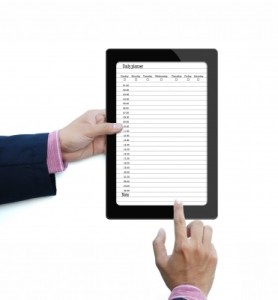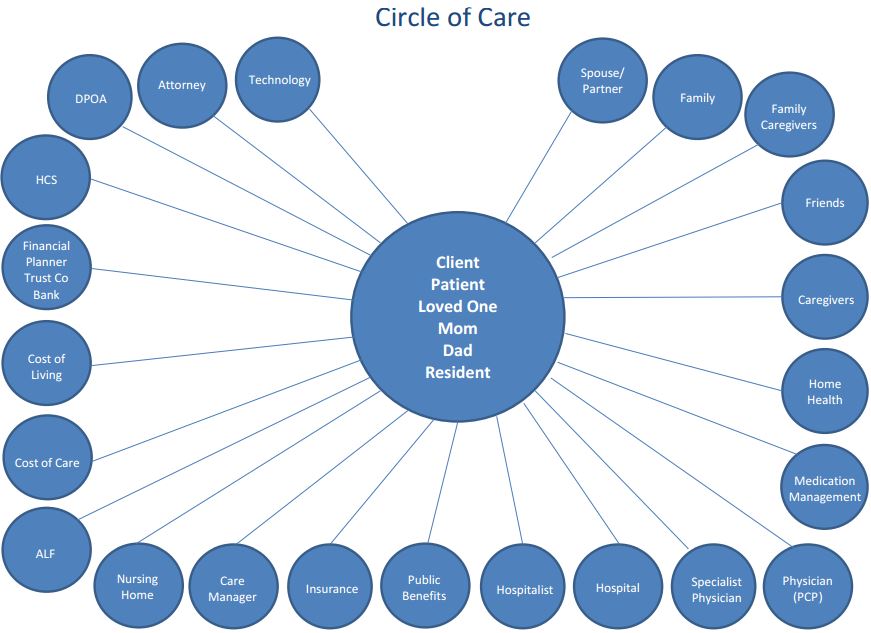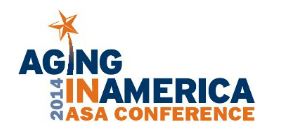Eldercare: The Benefits of a Developing a Schedule
Our team offers eldercare advice based on many years working with numerous clients and families. Today, we share our secret to making eldercare easier for everyone (and life better for your aging loved ones): the schedule.
Why is a schedule so useful for eldercare and well-being for elders?
- Healthy aging means staying active, both physically and mentally. The person’s health situation might place certain limitations on activities, but studies continue to show the importance of active engagement in life for physical and mental health. Exercise and physical activity can stimulate the brain’s ability to maintain old network connections and make new ones vital to healthy cognition and help elders maintain physical functioning and prevent/delay disease. Post-retirement health declines are mitigated when a person stays active, has social support or continues part-time work (or volunteer work).
- Routine creates comfort and stability. We all tend to have preferences for when we like to get up and go to bed and things we like to do throughout the day. Our routines can be comforting and create our sense of home, even when other things change. A routine schedule is especially important for people with dementia or cognitive problems.
- A schedule helps set expectations, especially if you have professional caregivers involved in eldercare. It helps to set expectations of what the “caree” prefers in terms of eating times, wake/sleep times and other daily routines, along with tasks and activities that should be completed. This is one of the great benefits of in-home care versus the group setting of a care facility. An elder can continue to follow whatever routine he/she wishes. Our EasyLiving team uses a unique Life History and Daily Routines Questionnaire to develop a customized home care plan.
Our eldercare experts’ words of wisdom about schedules:
- Routine activities are the “comfort foods” of our lives. Don’t underestimate the value of these activities to someone. Make sure to let caregivers know about them. Consider important routines in planning activities (there’s nothing worse than planning a big activity when all the other person can think of is missing People’s Court).
- Of course, meals are the real comfort food of our lives. Don’t underestimate the importance of meals and food traditions. As we age, our appetites and nutrition needs may change, making meals even more important to us physically. Sometimes elders living alone experience loneliness at meal times, which can lead to poor eating habits (eating too little, snacking only on junk food or overeating). Having mealtime companionship and help preparing meals can improve nutrition and reduce loneliness.
- Channel your inner Cruise Director. Get creative with activity ideas. Your elder “caree” might not be able to do the same things they used to, but there are often ways to modify activities. Take a look around the local community for events, classes and groups. Check the local senior center, but also look at community centers, special interest groups, libraries, theaters and more.
- Don’t overschedule. This is especially important when you’re a long-distance caregiver making a visit, or when a hired caregiver first starts. You might be tempted to pack in lots of important appointments and make the most of the time, but remember your loved one probably doesn’t function at the same pace you do. It’s also good to allow for unexpected delays and to leave time for talking and relaxing together (and for hired caregivers to build a relationship).
- For hired caregivers, create a daily schedule and be specific. Schedule tasks, so that you don’t run into the problem of caregivers saying they thought it would be handled on a different day/by someone else. Schedule in tasks and appointments in specific time slots. For activities, you might set aside activity time but leave a few different ideas for what can be done during the time, or make notes about alternatives (for example, an outdoor activity with an indoor option in case it rains). Be as specific as possible and provide guidance.
For more great “insider” tips from our eldercare experts, sign-up with one click for our monthly email newsletter. Contact our eldercare advisor for a free consultation via email or at 727-447-5845.





 Popular Downloads
Popular Downloads


 Get Our Newsletter!
Get Our Newsletter! Mission Statement
Mission Statement

